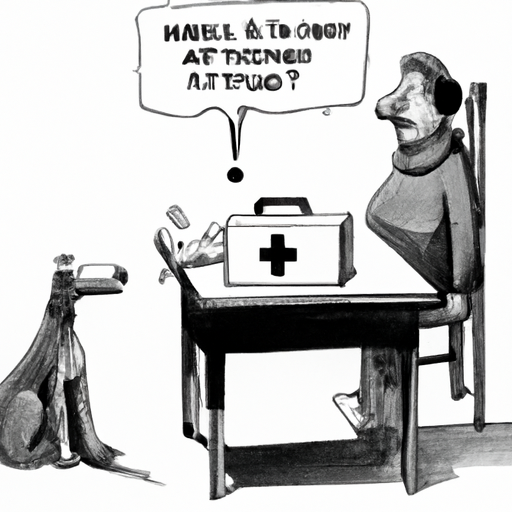As a caregiver, you know that paying attention to your dog’s breathing can be crucial. It’s a significant health indicator. But how do you know when your dog’s heavy breathing is normal or a cause for concern? This article will guide you through the different reasons why dogs breathe hard and what you can do about it.
Understanding Your Dog’s Breathing
First, it’s essential to understand what normal breathing for a dog looks like. Dogs typically take 15-30 breaths per minute, but this can increase when they’re hot or excited.
- Resting Respiratory Rate (RRR): This is the number of breaths your dog takes per minute while calmly resting.
- Panting: Dogs pant to cool down; it’s their way of sweating.
Not all heavy breathing is bad. However, if your dog is breathing hard without any apparent reason, it could be a sign of an underlying problem.
Common Causes of Heavy Breathing in Dogs
Next, let’s look at some common reasons why your dog might be breathing hard:
- Heatstroke: Dogs can’t sweat like humans do, so they pant to cool down. If your dog has been in hot weather or a hot car, they may be suffering from heatstroke.
- Obesity: Overweight dogs have to work harder to breathe, leading to heavy panting.
- Brachycephalic Syndrome: Breeds with short noses and flat faces (like Bulldogs and Pugs) often struggle with breathing due to their physical structure.
- Heart Disease: If your dog’s heart isn’t working correctly, they may breathe harder to get the oxygen they need.
- Respiratory disorders: Conditions like pneumonia or bronchitis can cause heavy breathing in dogs.
| Cause | Symptoms | Treatment |
|---|---|---|
| Heatstroke | Excessive panting, drooling, lethargy | Move to a cool place, provide water |
| Obesity | Difficulty moving, fatigue | Diet and exercise |
| Brachycephalic Syndrome | Snoring, blue gums | Surgery in severe cases |
| Heart Disease | Coughing, loss of appetite | Medication, diet change |
| Respiratory disorders | Coughing, nasal discharge | Medication, rest |
When to Seek Veterinary Help
If your dog’s heavy breathing is accompanied by other symptoms or lasts for an extended period, it’s time to consult a vet. Unexplained heavy breathing, especially when your dog is at rest, should be addressed immediately.
Preventing Heavy Breathing
Prevention is better than cure. Here’s how you can help prevent your dog from heavy breathing:
- Regular exercise: This helps keep your dog’s weight under control.
- Healthy diet: Feed your dog a balanced diet to avoid obesity.
- Regular vet visits: These enable early detection of heart disease or respiratory disorders.
- Avoid hot environments: This can prevent heatstroke.
Frequently Asked Questions
Q: Is it normal for my dog to breathe hard after exercise?
A: Yes, it’s normal for dogs to pant after exercise as they’re cooling down.
Q: Why is my dog breathing hard at night?
A: It could be due to overheating or discomfort. If it continues, consult a vet.
Q: What does labored breathing in a dog look like?
A: Labored breathing may include open-mouth panting, wheezing, or gasping for breath.
Q: How can I tell if my dog is in respiratory distress?
A: Symptoms can include blue gums, rapid breathing, coughing, or inability to lie down.
Q: Can anxiety cause heavy breathing in dogs?
A: Yes, dogs can pant heavily when they are anxious or stressed.
Understanding why dogs breathe hard can help you ensure your canine companion is healthy and happy. Always consult a vet if you’re concerned about your dog’s breathing.



